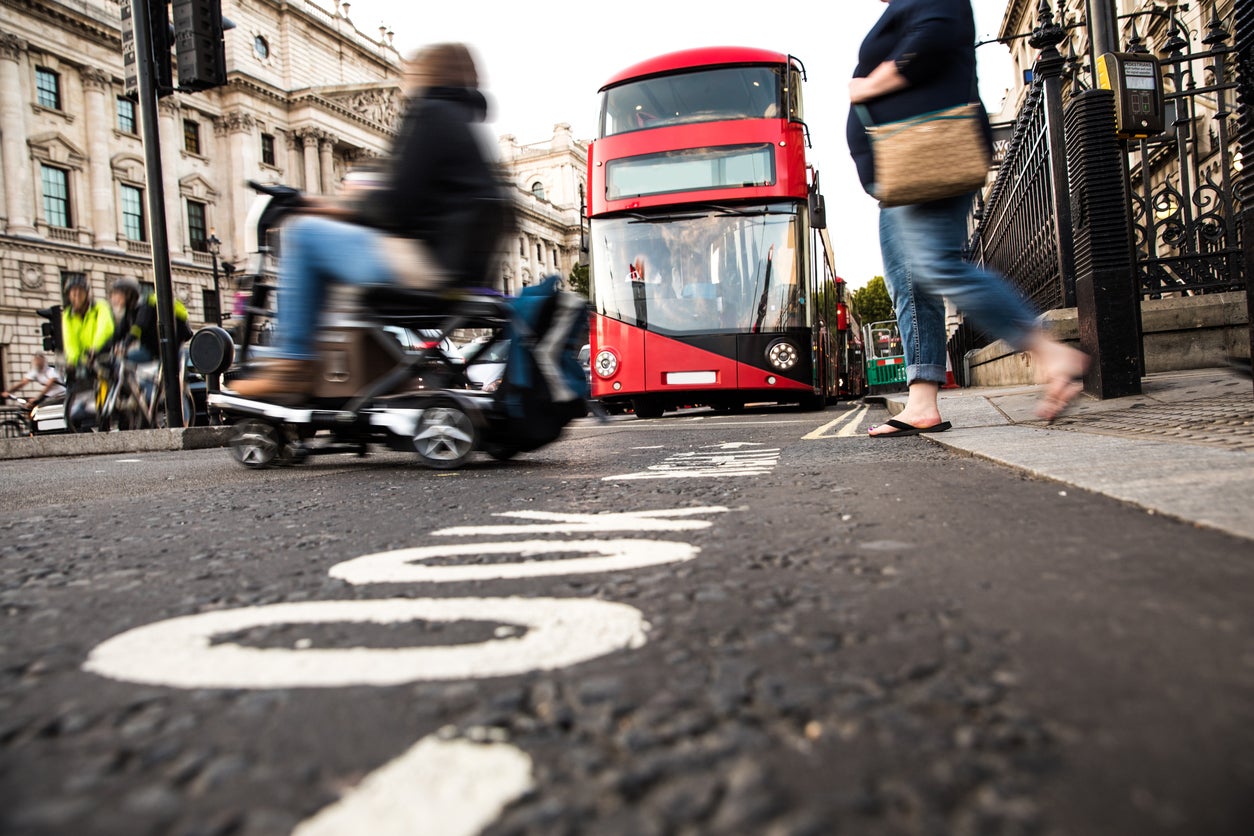One in four disabled people don’t use public transport due to negative attitudes from other passengers, new research finds
New research highlights the significant challenges disabled people face when it comes to accessibility

Disabled people face considerable challenges when it comes to accessibility at UK tourist attractions and getting around on public transport, according to several pieces of new research.
One in four disabled people say negative attitudes from other passengers prevent them from using public transport, while 40 per cent often experience issues or difficulties when travelling by train in the UK, a study from disability equality charity Scope has found.
Its Independent. Confident. Connected report included findings based on interviews with 2,000 UK working age adults with long-term impairments or conditions.
“I can’t just travel spontaneously; there are long waits at train stations,” said wheelchair user Jignesh Vaidya. “Having been assured at one station that they have notified my destination of my arrival time, I often arrive to find there are no staff there to assist me.”
Amit Patel, who is blind, said: “I travel daily on the trains, tubes and buses around London with my guide dog and two-year-old son, confident that I can get the support I need to get to where I need to go.
“But a negative experience can knock that confidence easily. Travel shouldn’t be a barrier to independence. All transport companies provide help for those that need it, but it’s often not well known, or the service isn’t consistent enough or flexible enough to adapt to the needs of disabled people.”
Meanwhile, accessibility awareness is also a major issue. User experience agency Sigma investigated the user-friendliness of public spaces, transport hubs and leisure venues for disabled people by submitting two accessibility requests – one for a person in a wheelchair and another for somebody with autism – to 132 different organisations.

These included airports, train operators, music venues, sports stadiums, hotels and cinemas. Only 46 per cent of organisations responded to the disabled access request from somebody in a wheelchair – this number dropped to 33 per cent when it came to the request for someone with autism.
Some 27 per cent of venues also gave generic responses to requests that would only be suitable for a physically impaired person, without understanding the difference between physical and cognitive conditions.
“In our experience, most companies want to do more – but have not made their accessibility policy or staff awareness a priority,” says Hilary Stephenson, managing director at Sigma. “However, the commercial benefits of providing full access are clear. It is estimated that thousands of businesses could be turning away the custom of as many as one in five people by being inaccessible to people of ranging abilities or conditions; a loss of £212bn.”
Issues around accessible travel have been brought to the fore in the last year by high-profile cases in the media.
In July, comedian Tanya Lee Davis was left “humiliated and embarrassed” after a Great Western train guard tried to get her to move her mobility scooter for a mother and child. BBC journalist Frank Gardner was stranded on an empty plane at Heathrow airport for the second time in six months. And journalist Hollie Brooks felt “like a second-class citizen” when she boarded a Greater Anglia train in August to find her allotted wheelchair space taken up with a catering trolley and boxes of food.
Problems aren’t confined to trains and buses either, as highlighted by disability activist and postgraduate student Bal Deol. Since she steered a campaign to ensure taxis couldn’t refuse to pick up wheelchair users, she says she’s been “blacklisted” by local cab companies in Stoke on Trent.
“Taxi drivers overcharging or refusing to take people like me prevents wheelchair users from living life with the same level of freedom as non-disabled people.

“Last week I was quoted £35 by one taxi driver and £10 by another on the same taxi rank – the disparity is shocking and has obvious financial implications. I have previously been quoted £55 for a one-mile journey after a night out when the going rate for that trip is only £10 for everybody else.”
James Taylor, head of policy and public affairs at Scope, said: “From airports to buses, we’ve heard too many horror stories of disabled people let down by poor infrastructure, bad service, or being treated as an afterthought. This urgently needs to change.
“A genuinely inclusive transport network would allow disabled people to be part of their community, work, and see family and friends.
“Progress towards fair and inclusive transport has been slow, and disabled people want to see change happening a lot faster.”
He added: “That’s why we’re calling on everyone – transport providers, politicians and the public- to play their part.”
Join our commenting forum
Join thought-provoking conversations, follow other Independent readers and see their replies
Comments
Bookmark popover
Removed from bookmarks